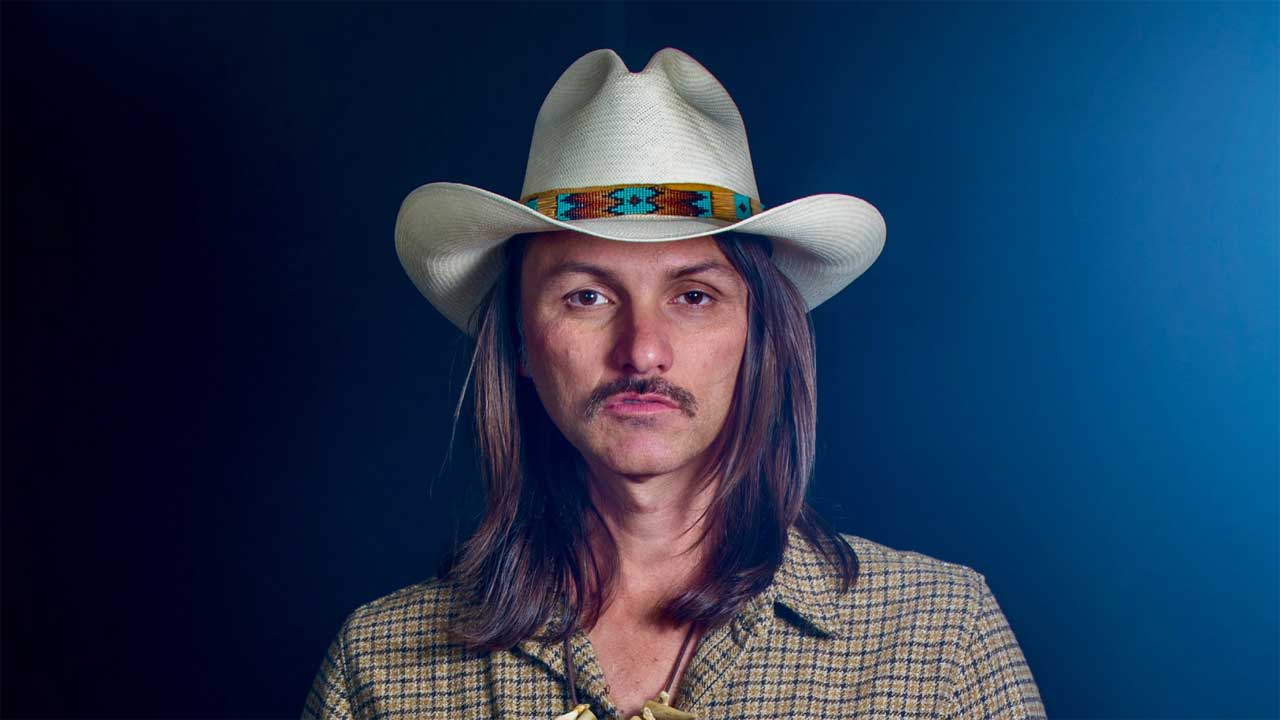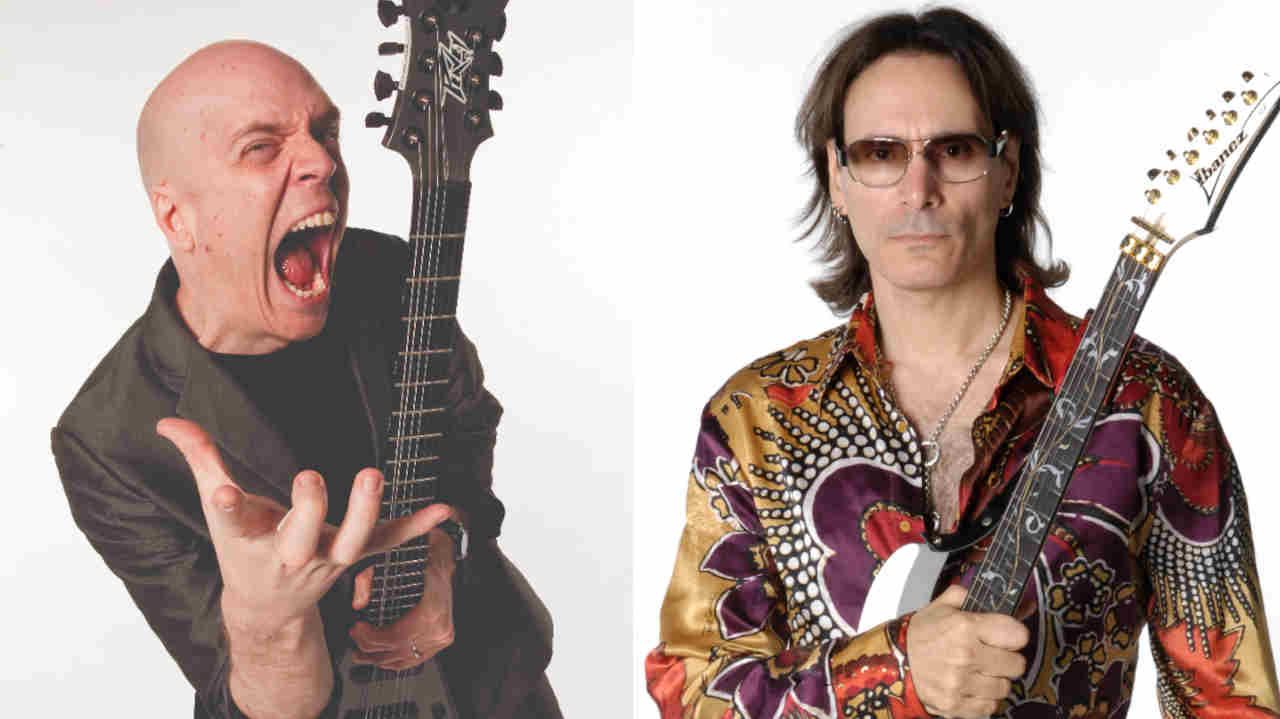"It's all a matter of perception - Southern soul music is what I like": Duane Betts on his debut album, a famous dad, and the term 'southern rock'
Allman Betts Band guitarist/singer Duane Betts' debut solo album Wild & Precious Life is out now

Select the newsletters you’d like to receive. Then, add your email to sign up.
You are now subscribed
Your newsletter sign-up was successful
Want to add more newsletters?

Every Friday
Louder
Louder’s weekly newsletter is jam-packed with the team’s personal highlights from the last seven days, including features, breaking news, reviews and tons of juicy exclusives from the world of alternative music.

Every Friday
Classic Rock
The Classic Rock newsletter is an essential read for the discerning rock fan. Every week we bring you the news, reviews and the very best features and interviews from our extensive archive. Written by rock fans for rock fans.

Every Friday
Metal Hammer
For the last four decades Metal Hammer has been the world’s greatest metal magazine. Created by metalheads for metalheads, ‘Hammer takes you behind the scenes, closer to the action, and nearer to the bands that you love the most.

Every Friday
Prog
The Prog newsletter brings you the very best of Prog Magazine and our website, every Friday. We'll deliver you the very latest news from the Prog universe, informative features and archive material from Prog’s impressive vault.
As the 45-year-old son of Allman Brothers Band co-founder Dickey, Duane Betts knows all about expectations.
A guitarist, singer and songwriter just like his celebrated father, Duane – also a member of the Allman Betts Band along with Devon Allman and Berry Duane Oakley (respectively the sons of late Allman Brothers Band alumni Gregg Allman and Berry Oakley) – is keen to carve his own path via his solo debut album Wild & Precious Life.

You must have stood side-stage at many Allman Brothers gigs. Were you always set on becoming a musician?
Yeah, although I started as a drummer at five years old before switching over to guitar at eighteen, that was always the plan. I guess watching my dad and Warren Haynes every night and being able to ask for their guidance really helped shape my playing a lot.
If it hadn’t happened did you have back-up plan in place?
My dad went all-in as a guitar player because he had the confidence that he would make it one way or the other, and although there was no pressure from him he allowed me to follow my instincts.
After cutting your teeth with the groups Backbone69 and Whitestarr, in 2005, five years after he left the Brothers, you joined your dad in Dickey Betts & Great Southern. How did that feel?
Sign up below to get the latest from Classic Rock, plus exclusive special offers, direct to your inbox!
From the age of about nineteen I had done a lot of work out in Los Angeles before it happened. I ended up playing with my dad for many years, which, having sat in with the Allman Brothers as a teenager, felt like the wheel turning full circle. I learned a lot about how to run a band and to be on stage. Those are some of my fondest memories.
Evergreen, the opening track of your full-length solo debut album Wild & Precious Dreams, displays many of the hallmarks of great southern rock, from sun-kissed dual guitar licks to lyrics about a smiling audience and learning how to say goodbye to love.
That’s a song I’m really proud of. It touches on some things about my mother. It’s quite emotional.
Evergreen is a co-write with Devon Allman. Did it start out as an Allman-Betts song?
It could have been, potentially. I had the song basically done, but I played it to Devon and he came up with the last line. I was grateful and super-happy to have a contribution from him on my record.
The album was recorded at Swamp Raga Studio in Jacksonville, owned by your friends Susan Tedeschi and Derek Trucks, on analogue tape.
We could have made it with Pro Tools, but I really wanted the warmth of [working with] tape. That sound is so authentic, you just can’t beat it. Largely, everything was done in one take wherever possible, though some of my solos were later touched up.
Derek Trucks plays guitar on one of the album’s highlights, Stare At The Sun, and he also helped out with that song’s title.
I had been talking to Derek about my father and he said something interesting: that he is one of those guitar players unafraid of staring into the sun. I already had the song which expressed feelings about my dad, and given that it’s also about the whole process of life, that had to be the title.
You trade solos with Marcus King on Cold Dark World, and Nicki Bluhm added harmony vocals to a delightful slice of country titled Colors Fade.
Marcus is so immensely talented. I like the fact that he’s a younger guy that comes from the South and is completely authentic. Nicki works a lot with [Grateful Dead bassist] Phil Lesh, and I’ve played a lot with Phil too, so it was great to include her as well.
It’s notable that three members of the Allman Betts Band – Berry Duane Oakley, Johnny Stachela and John Ginty – back you on the album.
Those guys knew I was making the record and wanted to be a part of it, and, frankly, I’m really comfortable working with them.
What’s the current status of the Allman Betts Band?
We’re doing a few pop-up shows this summer. Devon and I are on great terms. But right now I’m focused on my own record and touring as much as I can. I won’t make it over to the UK this year, but I’m making it an absolute must for some time in 2024.
Is the title of the song Wild & Precious Life a reference to the drugs that for a while threatened your career?
That’s part of it. It all comes from being grateful, because life is short. I’ve been clean for some time now. To quote Keith Richards, it [addiction] is an easy club to join but a hard one to get out of.
Still referencing your biography, you seem shy of mentioning the term ‘southern rock’, referring to the sound as “story-driven American rock & roll” and “timeless American music”. Is ‘southern rock’ a term you frown upon? Is it over-used?
I’m comfortable with whatever they want to call me, but I think southern rock is a blanket term used for… I need to be careful here… if you’re talking about Molly Hatchet and .38 Special, my music doesn’t have a whole lot in common with that. I love the Allman Brothers, early Marshall Tucker Band and the original Lynyrd Skynyrd. But it’s all a matter of perception. Southern soul music is what I like.
What does your dad make of the album?
He’s a man of few words, but as far as the songs go he loves it. He really likes the album’s simplicity. Dad knows I can play the guitar and everything, but he said he was really impressed by Circles In The Stars, which is also one of my favourite songs, so that meant a lot.
Wild & Precious Life is out now.

Dave Ling was a co-founder of Classic Rock magazine. His words have appeared in a variety of music publications, including RAW, Kerrang!, Metal Hammer, Prog, Rock Candy, Fireworks and Sounds. Dave’s life was shaped in 1974 through the purchase of a copy of Sweet’s album ‘Sweet Fanny Adams’, along with early gig experiences from Status Quo, Rush, Iron Maiden, AC/DC, Yes and Queen. As a lifelong season ticket holder of Crystal Palace FC, he is completely incapable of uttering the word ‘Br***ton’.
